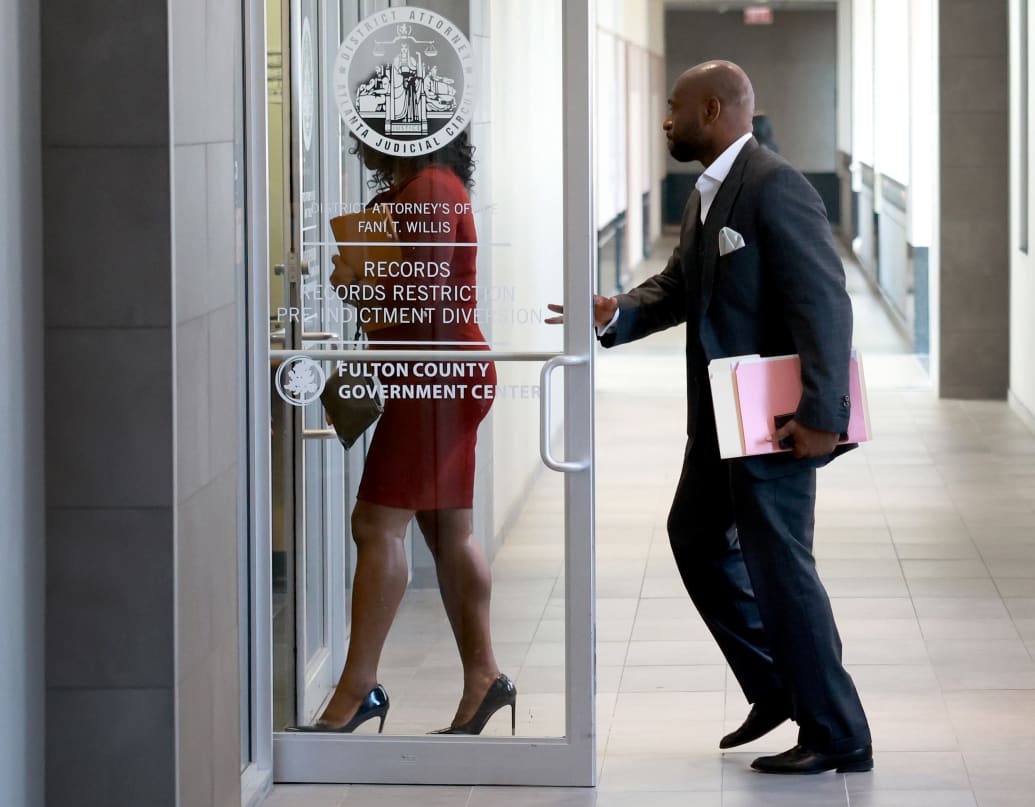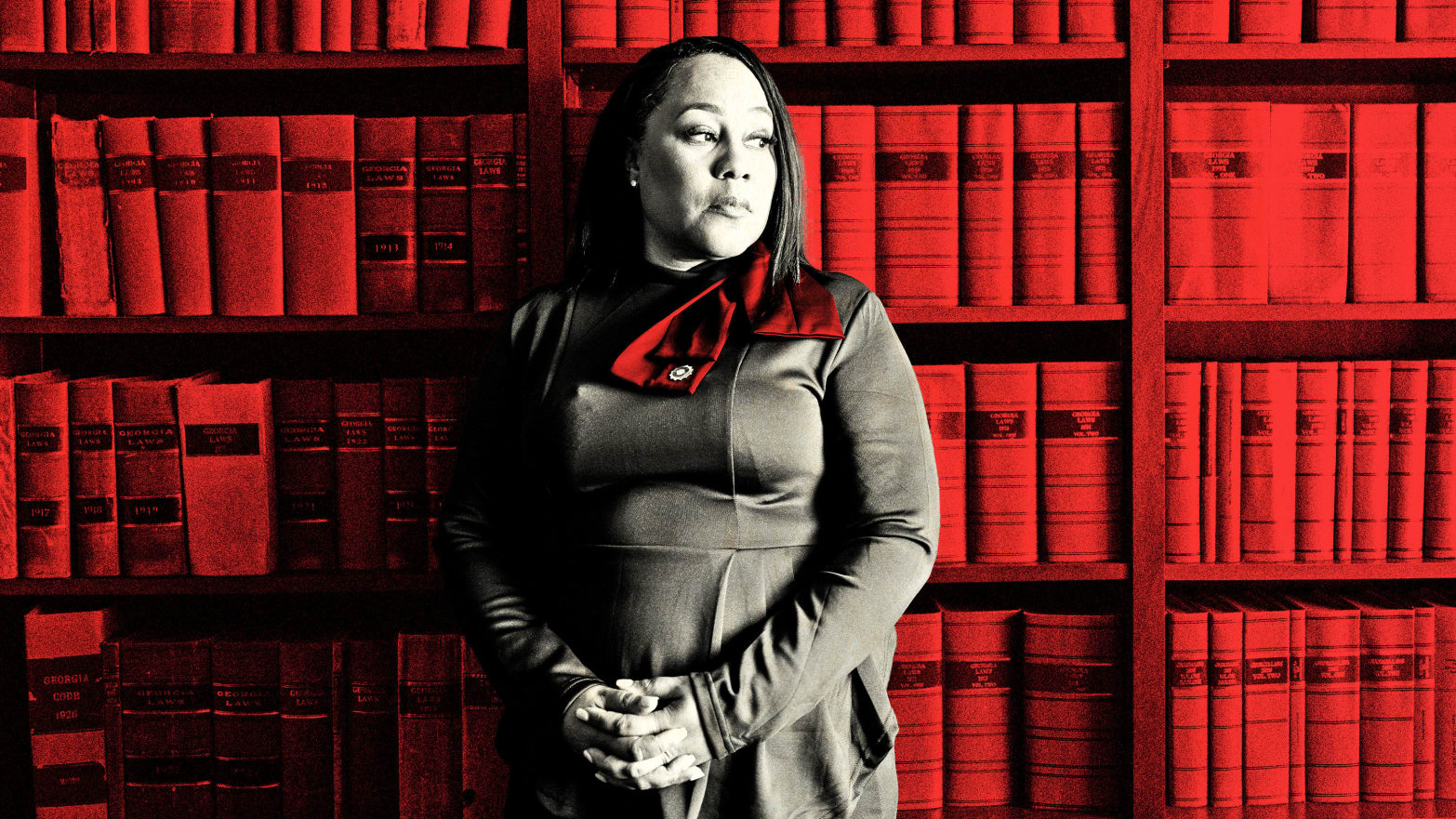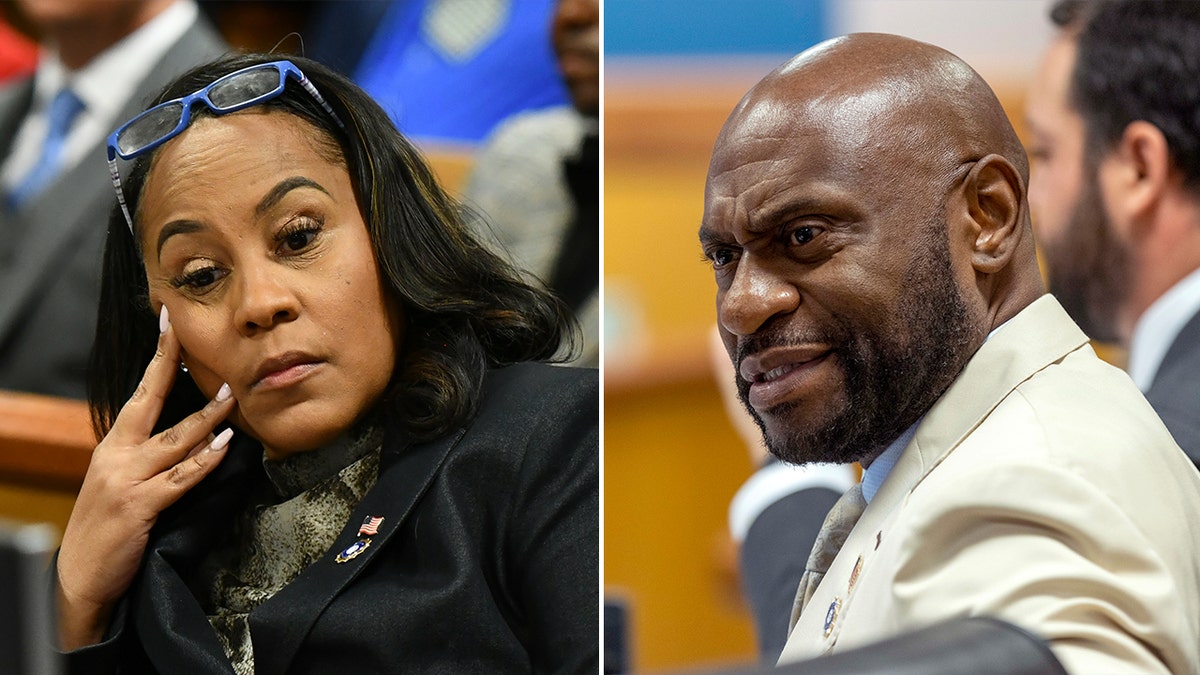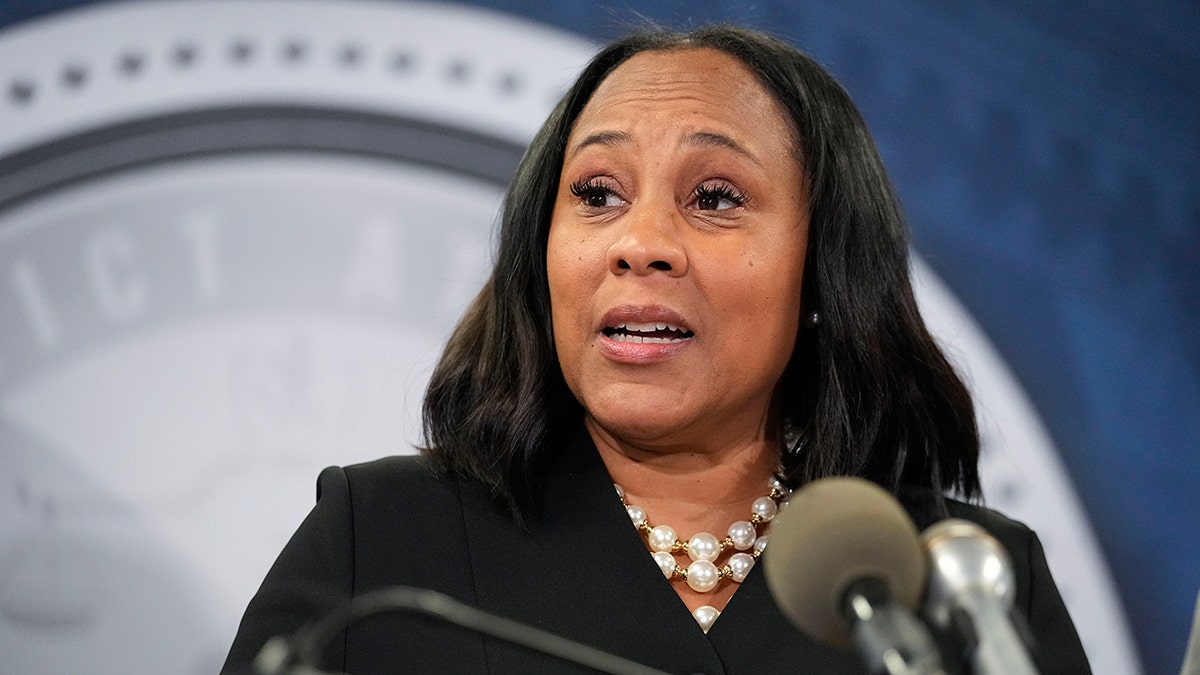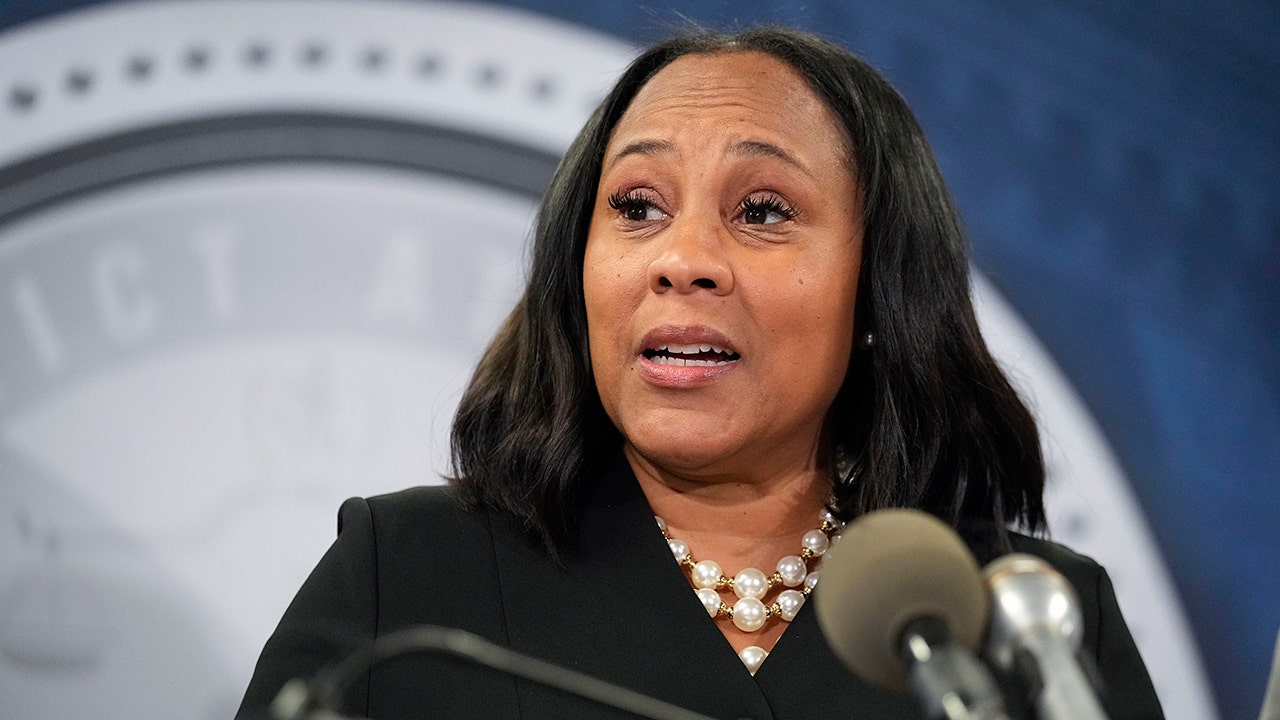The article is deceptive because it omits important information that would allow the reader to understand the context and significance of Ms. Willis's relationship with Mr. Wade. The article does not mention that they are both special prosecutors hired by Fulton County, Georgia, to investigate possible criminal conduct by Trump and his allies related to the 2020 election results in the state. The article also does not explain why their personal relationship would create a conflict of interest or affect the integrity of the case. By omitting these details, the article leaves room for speculation and bias against Ms. Willis and her colleagues, who are pursuing one of the most important legal actions against Trump in history.
The article is deceptive because it uses sensationalism to create a false impression of the situation without providing any factual support. The article uses phrases like 'leading', 'manage' and 'prosecuting' to suggest that Ms. Willis has full control over the case, when in reality she is only one of several prosecutors working on it under her supervisor, Susan Berman, the district attorney for Fulton County. The article also uses phrases like 'subpoenaed', 'deposed' and 'quash' to create a sense of urgency and drama, when in reality these are routine procedural steps that do not imply any wrongdoing or scandal on Ms. Willis's part.
The article is deceptive because it uses science and health articles that reference studies that have not been peer-reviewed or pre-print without disclosing them as such. The article does not indicate whether Mr. Wade's personal life, including his marital status and sexual history, are relevant to the criminal investigation or the divorce proceedings, but it implies that they are by using phrases like 'his wife', 'his marriage' and 'his affair'. It also suggests that these details could compromise Ms. Willis's impartiality or credibility as a prosecutor without providing any evidence or logic for how.
The article is deceptive because it uses selective reporting to present only the details that support its narrative without providing any balance or context. The article does not mention that Mr. Wade has denied the accusation of having a romantic relationship with Ms. Willis, or that he has filed his own motion to quash the subpoena issued by Mr. Roman's lawyer, arguing that it is an abuse of process and a fishing expedition aimed at harassing and intimidating Ms. Willis and her office. The article also does not mention that Fulton County has filed its own motion to intervene in the divorce case, arguing that Mr. Wade's personal affairs are irrelevant to the criminal investigation and that he should be compelled to testify before a grand jury instead of a civil court.
The article is deceptive because it implies without providing evidence or justification that having a romantic relationship with someone who works on your case could compromise your impartiality as a prosecutor. This is an example of emotional manipulation by omission, which means leaving out information that would otherwise affect the reader's perception or judgment of the situation.
The article is deceptive because it omits relevant information that would help the reader understand the context and significance of Ms. Willis's role in the case. The article does not mention that Ms. Willis was appointed by Fulton County, Georgia, to lead a special purpose grand jury investigation into possible criminal conduct by Trump and his allies related to the 2020 election results in the state. This is an important detail because it shows that Ms. Willis has been entrusted with one of the most powerful and sensitive legal tools available to prosecutors, and that she has a duty to act impartially and independently from political pressure or interference. The article also does not explain why Mr. Wade was hired as her co-prosecutor, or what his qualifications are for managing such a complex and high-profile case.
The article is deceptive because it uses a questionable source to make an accusation without providing any evidence or verification. The article cites Michael Roman, one of Trump's co-defendants, as the source of the claim that Ms. Willis and Mr. Wade are having a romantic relationship. This is problematic for several reasons: first, it creates an appearance of bias and conflict of interest on behalf of Roman, who has a personal stake in undermining the case against Trump; second, it does not disclose that Roman is one of Trump's co-defendants in the criminal case, which could imply that he is trying to protect himself or his associates by casting doubt on Ms. Willis and her team; third, it does not indicate whether there are any other sources or witnesses who can corroborate Roman's claim, or whether there are any records of communication between Ms. Willis and Mr. Wade that could confirm or refute the allegation.
The article is deceptive because it uses emotional language to manipulate the reader's feelings and opinions without providing any factual support. The article repeatedly refers to Trump as 'former President Donald J. Trump', which implies a negative judgment of his status and legitimacy, even though he won re-election in 2016 and was inaugurated for a second term in 2017. This is an example of editorializing, which is the act of expressing one's own opinions or preferences as if they were facts.
The article is deceptive because it uses lies by omission to leave out important information that would help the reader understand the context and significance of Ms. Willis's relationship with Mr. Wade. The article does not mention that Fulton County, Georgia, has been a battleground state in several presidential elections, and that Trump and his allies have tried to overturn or undermine its electoral results in 2016 and 2020.
The article is deceptive because it uses lies by omission to leave out important information that would help the reader understand the context and significance of Ms. Willis's relationship with Mr. Wade. The article does not mention that Fulton County, Georgia, has been a leader in holding Trump and his allies accountable for their crimes related to the 2020 election, and that Ms.
The article is deceptive because it uses lies by omission to leave out important information that would help the reader understand the context and significance of Ms. Willis's role in the case. The article does not mention that Trump and his allies have been indicted or charged with multiple crimes related to their efforts to interfere with the 2020 election, including conspiracy, racketeering, fraud and inciting violence.
The article is deceptive because it uses science and health articles that imply facts without linking them to peer-reviewed studies or evidence. The article does not specify what kind of relationship Ms. Willis allegedly had with Mr. Wade, but it implies that it was romantic by using phrases like 'romantic relationship' and 'having a romantic relationship'. It also suggests that this could affect the outcome or fairness of the election interference case without providing any explanation or justification for how.

